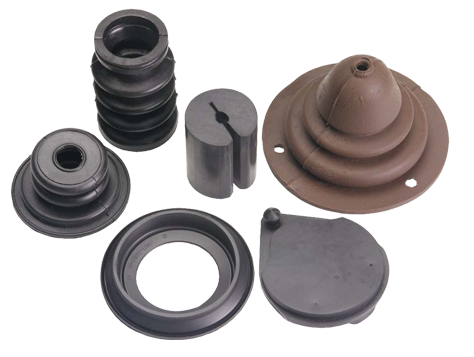Introduction to Sustainability in Rubber Manufacturing
As industries worldwide continue to focus on sustainability, the rubber manufacturing sector is also making strides in creating eco-friendly materials. Rubber, an essential component in many industries—from automotive to medical—has traditionally posed environmental challenges due to its production processes and disposal issues. However, with increased awareness of the environmental impact of rubber production, there has been a significant shift towards more sustainable and eco-friendly rubber compounds.
This article explores how sustainability is transforming rubber manufacturing, with a focus on innovations that reduce environmental impact and promote long-term ecological balance.
The Environmental Impact of Traditional Rubber Manufacturing
Traditional rubber manufacturing processes often involve the use of synthetic rubber, which is derived from petroleum-based products. These processes are energy-intensive and produce carbon emissions, contributing to environmental degradation. Furthermore, the disposal of rubber products—especially tires—has long been a challenge, as they take years to decompose and are often difficult to recycle.
Given the widespread use of rubber, it is essential to find alternatives that address these issues while maintaining the high performance, durability, and functionality that the material is known for.
Innovations in Eco-Friendly Rubber Compounds
Over the last few years, rubber manufacturers have made significant progress in developing more sustainable materials. One key development is the creation of bio-based rubber, made from renewable resources such as plant oils, resins, and latex harvested from rubber trees. These materials offer the same performance properties as conventional synthetic rubber but with a significantly reduced environmental footprint.
Additionally, advances in recycled rubber have paved the way for more sustainable production practices. Recycled rubber, which can be sourced from used tires or rubber waste, is now being repurposed for a variety of applications, reducing waste and conserving natural resources. Not only does this process help minimize environmental impact, but it also reduces the need for new raw materials, lowering the overall carbon footprint of rubber production.
Sustainability in Manufacturing Practices
Beyond the raw materials used in rubber compounds, sustainability in manufacturing processes also plays a critical role. Many companies are turning to energy-efficient machinery and greener manufacturing methods to reduce emissions and energy consumption. Arucoworld, for example, has made significant investments in improving its production processes to ensure that they meet stringent environmental standards. The company’s initiatives include using low-emission production equipment and optimizing its supply chain to reduce waste and increase efficiency.
Furthermore, the use of sustainable additives and accelerators in rubber compounding is another area of focus. These ingredients not only improve the performance of the rubber but also ensure that it has a minimal environmental impact throughout its lifecycle.
Challenges and Future Directions
While progress has been made, challenges remain in fully transitioning to sustainable rubber manufacturing. The production of bio-based and recycled rubber materials is still more expensive than conventional synthetic rubber, and scaling up production to meet global demand remains a hurdle.
However, with increasing consumer and industry demand for sustainable products, the rubber industry is expected to continue evolving. Companies like Arucoworld are leading the charge in developing greener alternatives while also ensuring that the quality and performance of their rubber products are not compromised.
Conclusion: A Greener Future for Rubber Manufacturing
Sustainability in rubber manufacturing is no longer a trend but a necessity. With the environmental challenges posed by traditional rubber production, companies across the industry are working to develop more eco-friendly solutions. The future of rubber manufacturing will undoubtedly rely on innovations that reduce waste, use renewable resources, and employ energy-efficient practices.
Arucoworld is committed to sustainability, focusing on developing high-performance rubber compounds that are as eco-friendly as they are durable. By embracing sustainability, the rubber industry can continue to meet the needs of modern industries while minimizing its environmental footprint.






